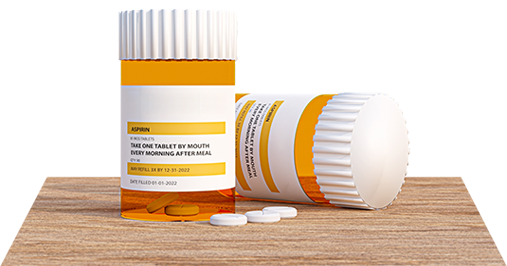Clinical trials
Home » Human medicines » Clinical trials

Clinical trials are fundamental for the development of innovative products: medicines and medical devices (high and in certain cases medium risk).
Clinical trial of a medicine is any investigation in human subjects which is intended to discover or verify clinical, pharmacological and other pharmacodynamic effects of one or more investigational medicines, to identify all adverse reactions to investigational medicine(s), to study absorption, distribution, metabolism and excretion of investigational medicines with the aim of ascertaining its (their) safety and/or efficacy. Clinical trial of a medicine also includes bioavailability, i.e. bioequivalence studies of medicines. Terms clinical trial and clinical study are synonymous.
Good Clinical Practice (GCP) is an international ethical and scientific quality standard for designing, conducting, recording and reporting on clinical trials involving human subjects. Compliance with this standard ensures that rights, safety and well-being of subjects are protected, in accordance with principles from the Declaration of Helsinki, and that the information obtained in clinical trial is reliable.
Non-interventional trial of a medicine is a study where a medicine is prescribed in the usual manner in accordance with terms of marketing authorisation. The assignment of patients to a particular therapeutic strategy is not decided in advance by a trial protocol, but falls within current practice and the prescription of the medicine is clearly separated from the decision to include the patient in the study. No additional diagnostic or monitoring procedures shall be applied to patients and epidemiological methods shall be used for the analysis of collected data.
Clinical investigation of a medical device is performed in accordance with Guidelines of Good Clinical Practice in clinical investigation, and the standard for clinical investigation of medical devices ISO 14155:2020.
Clinical trial of veterinary medicines is the testing on healthy and sick animals for detecting and confirming clinical, pharmacological, pharmacokinetic and pharmacodynamic properties of the medicine which is tested or for monitoring its adverse effects, in order to prove its safety and efficacy.
Investigational medicinal product (IMP) is a pharmaceutical form of an active substance or placebo being tested or used as a reference in a clinical trial, including medicines already with a marketing authorization, but used or assembled (formulated or packaged) in a way different from the authorized form, or when used for an unauthorized indications, or when used to gain further information about the authorized form.
Medicines are included in clinical trials based on results of pharmaceutical (physical-chemical, biological) and non-clinical (pharmacological-toxicological) and clinical testing.
Clinical trial of a medicine is conducted in compliance with principles of medical ethics (Declaration of Helsinki) and mandatory privacy and data protection of subjects in accordance with Law on medicines and Guidelines of Good Clinical Practice.
Clinical trial of a medicine may be conducted by the legal representative that was given the approval by the Institute. Clinical trial is conducted in a health care institution, at the expense and at the request of legal person applying for a clinical trial. Clinical trial may also be conducted at the request of the Ministry, or the Institute. Legal representative applying for a clinical trial must provide investigational medicines free of charge and devices used for their administration, if appropriate.
Medicines used in clinical trials must be manufactured in accordance with Good Manufacturing Practices (GMP) and be labeled with “for clinical trials”, in accordance with EudraLex – Volume 4 – Good Manufacturing Practice (GMP) guidelines (Annex 13), or in accordance with valid legislation on the labeling medicines in case of medicines with marketing authorization.
Clinical trial shall be conducted in accordance with the Law on medicines, Rulebook on more detailed conditions and documentation required for approval and conduct of clinical trials of medicines for human use, Protocol of a clinical trial, Guidelines of Good Clinical Practice (harmonized with ICH E6 (R3) guideline for good clinical practice, rev. 3/2025) and ICH E11(R1) guideline on clinical investigation of medicinal products in the pediatric population, rev 1/2017.
Department for Clinical Trials and Medicines Safety and Efficacy Assessment issues approvals for clinical trials and substantial amendments to the clinical trial, notifications for non-interventional trials of medicines, controls conducting and monitors the safety of the medicine being tested.
Highest ethical and scientific standards relating to the procedure of clinical trials approval, conduct and monitoring have been implemented in Montenegrin legislation. Protection of all persons subjected to the trial is always more important than the trial itself, i.e. subjects’ safety is at first place, and the subject must be fully informed on the benefit-risk ratio of the trial and investigational medicine.
Forms
- Application form for obtaining approval of clinical trial (updated 29.1.2021.) – document in Montenegrin
- Application form for conducting non-interventional trial (updated 29.1.2021.) – document in Montenegrin
- Application form for approval of substantial amendments of the clinical trial (update 29.01.2021.) – document in Montenegrin
- Application form for notification of administrative amendments of the clinical trial (updated 29.1.2021.) – document in Montenegrin
- Notification on completion/temporary suspension of the clinical trial (updated 29.1.2021.) – document in Montenegrin
Instructions
- Documentation required for approval for a clinical trial (updated 29.1.2021.)
- Documentation required for notification of a non-interventional trial (updated 29.1.2021.)
- Documentation required for import of medicines used in a clinical trial (updated 29.1.2021.)
- Contents of a clinical trial protocol (updated 29.1.2021.)
- Contents of the Investigator’s brochure (updated 29.1.2021.)
- Contents of the clinical study report (updated 29.1.2021.)
Issuance of approval for the conduct of a clinical trial
Applicant for clinical trial shall submit to the Institute an application with documentation for the approval of a clinical trial. An application for the approval of clinical trial may be submitted to the Institute even before receiving positive opinion from the Ethics Committee, with a statement that identical documentation at the same time has been submitted to the Ethics Committee. The Institute issues the approval after receiving positive opinion from the Ethics Committee.
Application with documentation for the approval of a clinical trial is assessed by the Institute’s experts and members of the Commission for Clinical Trials, that evaluate the justification of the clinical trial and compliance with the guidelines of Good Clinical Practice. Within the procedure of issuance of the approval for clinical trial, an expert assessment of the documentation include assessment of:existing non-clinical testing/clinical trials of a medicine, clinical trial design, outcomes and safety / efficacy endpoints, including / excluding criteria, criteria for suspending the trial, or withdrawal of the patients from the trial. All in order to ensure and protect rights, safety and well-being of the subjects involved in the clinical trial.
Collecting adverse reactions/events from clinical trials
Healthcare professional participating in a clinical trial as an investigator shall report all serious adverse reactions to the sponsor, as soon as possible, except those for which such action is not required by the clinical trial protocol.
Investigator in the clinical trial shall report adverse events that are not serious and/or laboratory abnormalities identified in the protocol as critical to safety evaluations, to the sponsor within the deadlines specified in the trial protocol.
Sponsor shall assess mentioned reports and promptly inform all investigators, the Ethics Committee and the Institute on all the information that could cause harm to subjects’ health, conducting clinical trials, or suspension of clinical trials.
The sponsor or applicant for the clinical trial shall report to the Institute the following adverse reactions manifested on the territory of Montenegro:serious, unexpected adverse reactions occurred during the course of clinical trial;
- serious, expected adverse reactions occurred in the course of the clinical trials, but with an increased frequency of manifestation (clinically significant);
- serious danger to patients occurred in the course of the clinical trials of the medicine (e.g., lack of efficacy of the medicine for patients with life-threatening disease);
- serious and unexpected adverse reactions occurred after the completion of the clinical trial study and which are reported to the sponsor by the investigator;
- serious and unexpected adverse reactions to the medicine used as a comparator in a clinical trial, on which the marketing authorisation holder in Montenegro is also notified.
Sponsor, or the applicant for the clinical trial shall submit to the Institute and to the Ethics Committee the following:
- a list of all suspected serious and unexpected adverse reactions to the medicine (hereinafter: SUSAR) in all the countries in which the same clinical trial is conducted, at least once in six months, or more often at the request of the Institute;
- Safety Update Report of the medicine in development, at least once a year, and the final safety report of the investigated medicine after the completion of the clinical trial.
In the development policy of the Institute, a special place belongs to the development of necessary infrastructure for conducting of clinical trials of innovative medicines in Montenegro, which would increase the availability of modern diagnostics and therapy to our patients.
At the same time, the Institute gives great attention to the education of expert and the general public in this area, in order to reduce risks during the conduct of clinical trials in Montenegro.
With the aim of educating healthcare professionals and patients in this area, the Institute created brochure entitled “Clinical trials of medicines”.
Register of approved clinical trials is available here.
Register of recorded non-interventional clinical trials is available here.
Search register
Here you can search for medicines in our register


Sign up for
Newsletter









